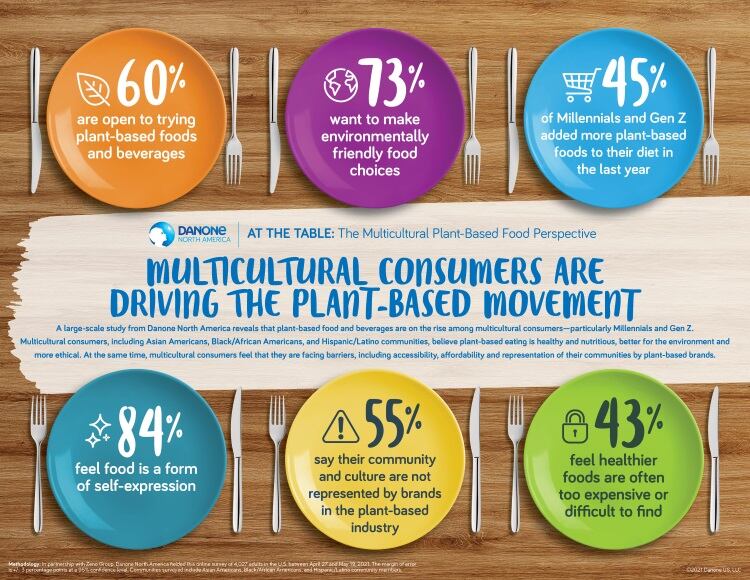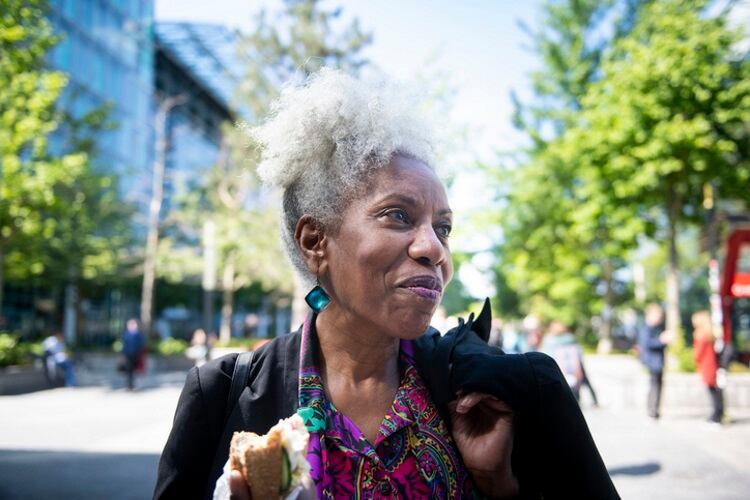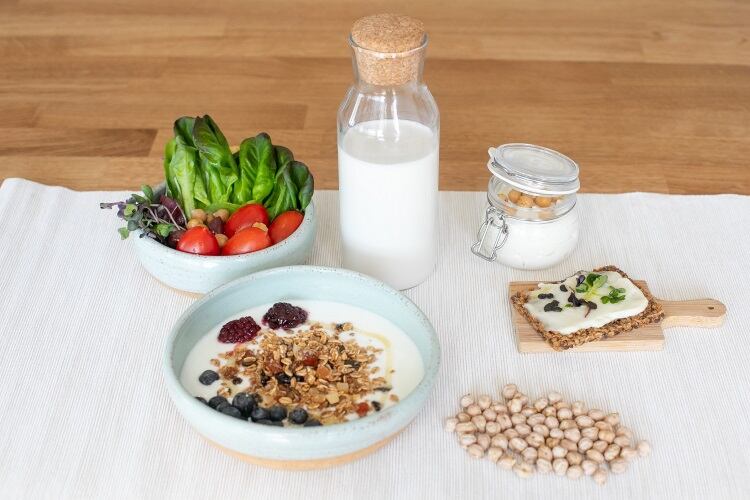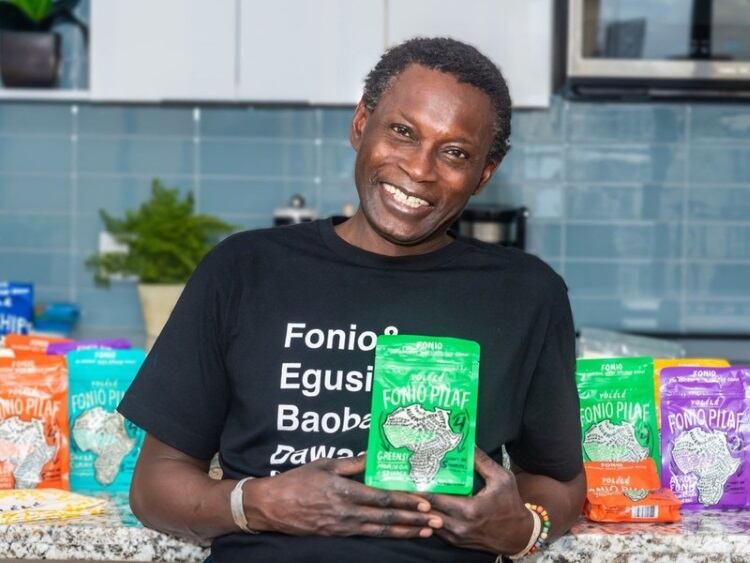Understanding that food plays a defining role in consumers’ lives – often seen as a form of self-expression – Danone North America embarked on research to learn the interest in plant-based eating among different multicultural communities, how the flexitarian lifestyle is evolving and how producers can better reflect their culture in everything from marketing to innovation.
The research – titled At the Table: The Multicultural Plant-Based Food Perspective – surveyed more than 4,000 adults in the US, including Asian Americans, Black/African Americans and Hispanic/Latino communities.
It found that plant-based eating is on the rise among multicultural audiences, especially the younger millennial and Gen-Z populations. It also uncovered gaps in the market, in that multicultural consumers feel that plant-based offerings are less attainable due to cultural stigmas and accessibility barriers.
“Plant-based eating has the potential to be a real beacon of healthy living, especially for diverse communities,” said John Starkey, president of plant-Based Food & Beverage for Danone North America.
“To hear that multicultural audiences are more willing to add plant-based foods into their diets was personally inspiring and affirming to me, as my family and many friends have adopted flexitarian lifestyles over the last few years. With this research and the breadth of our product portfolio, the ability to help move Danone North America and the plant-based industry forward is one of the biggest reasons why I joined the company.
“We’ve made a conscious effort to be more inclusive and reach underrepresented communities, particularly through our Silk and So Delicious brands, which have a long legacy in the plant-based space. Yet, there is still a lot of work to be done in understanding how different communities are experiencing plant-based food and beverages and how we can do more to engage and appeal to multicultural consumers, from our innovation choices and marketing efforts to our community impact work and sustainability strategies.”

Key facts and stats
- Multicultural audiences are more willing than the total population to add plant-based foods into their diets as a substitution for animal products, with younger millennials and Gen Z consumers leading the charge.
- 71% of Asian Americans, 55% of Black/African Americans and 61% of Hispanic/Latino respondents say they ‘strongly’ or ‘somewhat agree’ that they are open to substituting the current foods they eat with plant-based alternatives compared to less than half of total population respondents (49%).
- Nearly 9 out 10 (84%) multicultural respondents say food is a form of self-expression, compared to 79% of the total population. (Breakdown: 82% Hispanic/Latino, 80% Black/African American, and 91% Asian American.)
- Nearly three quarters of multicultural respondents (73%) say they 'strongly’ or ‘somewhat agree' that they try to be environmentally friendly with their food choices but sometimes don't have the information they need.
- More than half of (55%) respondents say their community and culture are ‘not that well’ or ‘not at all’ represented by plant-based food companies and brands, including 58% of Hispanic/Latino, 52% of Asian Americans, and 60% African American/Black respondents. The numbers are even higher among in the Gen-X and Baby Boomer generations within these communities.
- More than half of Hispanic/Latino (56%) and Black/African American (51%) respondents ‘strongly’ or ‘somewhat agree’ there is a stigma in their culture around people who eat plant-based foods.
- Multicultural respondents feel some healthier or more nutritious foods are less attainable due to barriers of affordability and accessibility. 48% of Asian Americans, 42% of Hispanic/Latino and 40% Black/African Americans also say they see plant-based foods as more expensive.
More inclusive culture
The research further highlighted that multicultural audiences believe plant-based eating is healthy and nutritious, better for the environment and more ethical. They are looking for more companies and brands to engage with in a deeper and more meaningful way, not only through marketing efforts, but also through ingredient choices, education and sustainability work.
Armed with this research, Danone North America is looking to take further action inspire more meaningful relationships, expanding its inclusive marketing and customer efforts through new internal and external partnerships.
“At Danone North America, we believe making progress toward a more inclusive, just, and diverse culture is an essential part of using our business as a force for good. Our commitments to Inclusive Diversity are put into action through a strategy that focuses on four major areas – our people, the marketplace, community engagement and advocacy, for a number of topics that demonstrate our support for racial equity and social justice,” said Terrance Irizarry, head of Inclusive Diversity for Danone North America.
“Marketing efforts for our portfolio should reflect the diversity of our consumers and society – and also reach those consumers meaningfully.
“Conducting this important research on behalf of our plant-based portfolio is a huge step forward in listening, learning and ultimately taking action. It’s also part of our larger journey and work toward enhancing the overall diversity in our content and our partnerships with diverse suppliers in the industry.”





